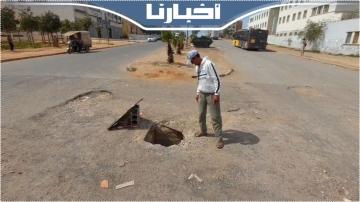ربط المسؤولية بالمحاسبة والإعفاء بطلب من المعني بالأمر

بعد الإستفاقة على فضيحة تدبير إصلاح ملعب الرباط، كثر الحديث وكتبت مقالات كثيرة عن ربط المسؤولية بالمحاسبة. ولمزيد من الإطلاع والفهم، نقترح عليكم مناقشة وتحليل فصول دستور يوليوز 2011، المتعلقة بركني المسؤولية والمحاسبة (الفصول باللغات العربية والفرنسية الإنجليزية).
_______________________________
إن الإسراع في فتح ورش المسؤولية و ورش المحاسبة المنصوص عليهما في دستور يوليوز 2011 ( الفصل الأول والفصل 147 ) ضرورة ملحة لوضع بلدنا على سكة الدول الديمقراطية. لكن ثمة تعثرات وعراقيل تقف صامدة أمام المكلفين بالأبحاث والتحقيقات الإدارية والمجلس الأعلى للحسابات. وحسب رأي بعض المهتمين بالموضوع، لا فائدة من تقارير الأبحاث الإدارية وتقارير المجلس الأعلى للحسابات المتراكمة فوق الرفوف، كما يقع بالنسبة لتقارير التفتيش التربوي وتقارير القطاعات الأخرى.
أما آن الأوان أن تفتح حكومة يناير 2012 ورشي المسؤولية والمحاسبة بعدما أن اهتمت بأوراش أخرى (صندوق المقاصة، العدالة، التقاعد، تحرير الأسعار... )؟ ليس عبثا أن ينص دستور يوليوز 2011 على ربط المسؤولية بالمحاسبة في فصله الأول . وفي اعتقادنا ورأي بعض المهتمين كان على الحكومة الحالية أن " تبدأ من البداية" (ورش المسؤولية و ورش المحاسبة)، ليتسنى لها التفرغ للأوراش الأخرى بكل فعالية. كان على الحكومة أن لا " تضع العربة قبل الحصان" وتحرق مرحلة الترتيب التشريعي لربط المسؤولية بالمحاسبة.
ومن جهة أخرى، فالمسؤولية بالمفهوم الحالي للإلتزامات لا يمكن عزلها عن المحاسبة المتعلقة ليس فقط بالجانب المالي و لكن كذلك بالجانب التدبيري.
وما زالت فكرة ربط المسؤولية بالمحاسبة تعرف غموضا عند بعض المسؤولين الكبار كالوزراء، حيث ، حسب رأيهم، تقتصر المساءلة والمحاسبة الإدارية على مرؤوسيهم ، كحالة أوزين الوزير السابق، الذي أقال الكاتب العام للوزارة ومدير الرياضات، محملا إياهما كل ما وقع من اختلالات في التسيير وهدر المال العام. أما" الإعفاء بطلب من المسؤول الأول"، كما وقع لأوزين، لا يمكنه، في نظرنا، إلا أن يكرس سياسة الإفلات من العقاب.
نعم، نحن أمام حالة شاذة تتتناقض مع مقتضيات الدستور:" إعفاء بطلب من المعني بالأمر"، وكأن الوزير أعفي من " تلقاء نفسه " ولم يتم إعفاؤه نظرا لثبوت مسؤوليته الإدارية والمالية، وكأن الوزير يعاقب أو يجازي نفسه بنفسه، وكأن "الإعفاء الإختياري"هو بمثابة إطفاء لنار غضب واحتجاجات الشارع المغربي، ليس إلا...، ولو قبل إنهاء البحث الإداري أو مراقبة وتدقيق الحسابات للوزارة المعنية بالأمر.
إن تنزيل مقتضيات الدستور في الباب العاشر (المجلس الأعلى للحسابات) هو بمثابة تفعيل الفصل الأول من الباب الأول (أحكام عامة) في شقه المتعلق بربط المسؤولية بالمحاسبة. هذه الأخيرة، نظرا لأهميتها بالنسبة للمواطن، تتموقع في"المرتبة" الرابعة بعد " فصل السلط، وتوازنها وتعاونها، والديمقراطية المواطنة والتشاركية، و مبادئ الحكامة الجيدة ".
كما أحدث الدستور الحالي المجلس الأعلى للحسابات لتقييم وتقويم الإختلالات ومعاقبة المخالفين، حيث خصص الفصول: 147-148-149-150 لهذه" الهيئة العليا لمراقبة المالية العمومية ". اختصاصات متنوعة وجديدة كما هو مبين في الفصل 147 (التقييم - حماية مبادئ الحكامة الجيدة - المحاسبة والشفافية - المراقبة - كيفية التدبير – مراقبة وتتبع التصريح بالممتلكات – تدقيق حسابات الأحزاب – فحص نفقات الإنتخابات).
لكن تفعيل هذه الإختصاصات واتخاذ الإجراءات اللازمة يعرفان تارة نوعا من التعثر وتارة أخرى نوعا من" الحفظ" كما تحفظ النيابة العامة" شكايات لعدم الأدلة".
________________________________________
الباب الأول
أحكام عامة
الفصل 1
نظام الحكم بالمغرب نظام ملكية دستورية، ديمقراطية برلمانية واجتماعية.
يقوم نظام الدستوري للمملكة على أساس فصل السلط، وتوازنها وتعاونها، والديمقراطية المواطنة والتشاركية، وعلى مبادئ الحكامة الجيدة ، وربط المسؤولية بالمحاسبة.
تستند الأمة في حياتها العامة على ثوابت جامعة، تتمثل في الدين الإسلامي السمح، والوحدة الوطنية متعددة الروافد، والملكية الدستورية، والإختيار الديمقراطي.
التنظيم الترابي للمملكة تنظيم لا مركزي، يقوم على الجهوية المتقدمة.
________________________________________
Titre I
Dispositions générales
Article premier
Le Maroc est une monarchie constitutionnelle, démocratique, parlementaire et sociale. Le régime constitutionnel du Royaume est fondé sur la séparation, l’équilibre et la collaboration des pouvoirs, ainsi que sur la démocratie citoyenne et participative, et les principes de bonne gouvernance et de la corrélation entre la responsabilité et la reddition des comptes.
La nation s’appuie dans sa vie collective sur des constantes fédératrices, en l’occurrence la religion musulmane modérée, l’unité nationale aux affluents multiples, la monarchie constitutionnelle et le choix démocratique. L’organisation territoriale du Royaume est décentralisée, fondée sur une régionalisation avancée.
________________________________________
Title One
General Provisions
Article One
Morocco is a constitutional, democratic, parliamentary and social Monarchy.
The constitutional regime of the Kingdom is founded on the separation, the
balance and the collaboration of the powers, as well as on participative
democracy of [the] citizen, and the principles of good governance and of the
correlation between the responsibility for and the rendering of accounts.
The Nation relies for its collective life on the federative constants [constantes
fédératrices], on the occurrence of moderate Muslim religion, [on] the national
unity of its multiple components [affluents], [on] the constitutional monarchy
and [on] democratic choice.
The territorial organization of the Kingdom is decentralized, founded on an
Advanced regionalization.
________________________________________
الباب العاشر
المجلس الأعلى للحسابات
الفصل 147
المجلس الأعلى للحسابات هو الهيئة العليا لمراقبة المالية العمومية بالمملكة، ويضمن الدستور استقلاله. يمارس المجلس الأعلى للحسابات مهمة تدعيم وحماية مبادئ وقيم الحكامة الجيدة والشفافية والمحاسبة، بالنسبة للدولة والأجهزة العمومية. يتولى المجلس الأعلى للحسابات ممارسة المراقبة العليا على تنفيذ قوانين المالية. ويتحقق من سلامة العمليات المتعلقة بمداخيل ومصاريف الأجهزة الخاضعة لمراقبته بمقتضى القانون، ويقيم كيفية تدبيرها لشؤونها، ويتخذ، عند الاقتضاء، عقوبات عن كل إخلال بالقواعد السارية على العمليات المذكورة.
تُناط بالمجلس الأعلى للحسابات مهمة مراقبة وتتبع التصريح بالممتلكات، وتدقيق حسابات الأحزاب السياسية، وفحص النفقات المتعلقة بالعمليات الانتخابية.
الفصل 148
يقدم المجلس الأعلى للحسابات مساعدته للبرلمان في المجالات المتعلقة بمراقبة المالية العامة، ويجيب عن الأسئلة والاستشارات المرتبطة بوظائف البرلمان في التشريع والمراقبة والتقييم المتعلقة بالمالية العامة. يقدم المجلس الأعلى للحسابات مساعدته للهيئات القضائية. يقدم المجلس الأعلى للحسابات مساعدته للحكومة، في الميادين التي تدخل في نطاق اختصاصاته بمقتضى القانون.
ينشر المجلس الأعلى للحسابات جميع أعماله، بما فيها التقارير الخاصة والمقررات القضائية. يرفع المجلس الأعلى للحسابات للملك تقريرا سنويا، يتضمن بيانا عن جميع أعماله، ويوجهه أيضا إلى رئيس الحكومة، وإلى رئيسي مجلسي البرلمان، وينشر بالجريدة الرسمية للمملكة. يُقدم الرئيس الأول للمجلس عرضا عن أعمال المجلس الأعلى للحسابات أمام البرلمان، ويكون متبوعا بمناقشة.
الفصل 149
تتولى المجالس الجهوية للحسابات مراقبة حسابات الجهات والجماعات الترابية الأخرى وهيئاتها، وكيفية قيامها بتدبير شؤونها. وتعاقب عند الاقتضاء، عن كل إخلال بالقواعد السارية على العمليات المذكورة.
الفصل 150
يحدد القانون اختصاصات المجلس الأعلى للحسابات والمجالس الجهوية للحسابات، وقواعد تنظيمها، وكيفيات تسييرها.
________________________________________
Titre X
De la cour des comptes
Article 147
La Cour des Comptes est l’institution supérieure de contrôle des finances publiques du Royaume. Son indépendance est garantie par la Constitution. La Cour des Comptes a pour mission la protection des principes et valeurs de bonne gouvernance, de transparence et de reddition des comptes de l’Etat et des organismes publics.
La Cour des Comptes est chargée d’assurer le contrôle supérieur de l’exécution des lois de finances. Elle s’assure de la régularité des opérations de recettes et de dépenses des organismes soumis à son contrôle en vertu de la loi et en apprécie la gestion.
Elle sanctionne, le cas échéant, les manquements aux règles qui régissent les dites opérations. La Cour des Comptes contrôle et assure le suivi des déclarations du patrimoine, audite les comptes des partis politiques et vérifie la régularité des dépenses des opérations électorales.
Article 148
La Cour des Comptes assiste le Parlement dans les domaines de contrôle des finances publiques. Elle répond aux questions et consultations en rapport avec les fonctions de législation, de contrôle et d’évaluation, exercées par le Parlement et relatives aux finances publiques.
La Cour des Comptes apporte son assistance aux instances judiciaires. La Cour des Comptes assiste le gouvernement dans les domaines relevant de sa compétence en vertu de la loi. Elle publie l’ensemble de ses travaux y compris les rapports particuliers et les décisions juridictionnelles.
Elle soumet au Roi un rapport annuel sur l’ensemble de ses activités, qu’elle transmet également au Chef du Gouvernement et aux Présidents des deux Chambres du Parlement. Ce rapport est publié au Bulletin Officiel du Royaume. Un exposé des activités de la Cour est présenté par son Premier président devant le Parlement. Il est suivi d’un débat.
Article 149
Les Cours régionales des comptes sont chargées d’assurer le contrôle des comptes et de la gestion des régions et des autres collectivités territoriales et de leurs groupements. Elles sanctionnent, le cas échéant, les manquements aux règles qui régissent les opérations financières publiques.
Article 150
La composition, l’organisation, les attributions et les modalités de fonctionnement de la Cour des Comptes et des cours régionales des comptes sont fixées par la loi.
________________________________________
Title X
Of the Court of Accounts
Article 147
The Court of Accounts [Cour des Comptes] is the superior institution of control of the public finances of the Kingdom. Its independence is guaranteed by the Constitution. The Court of Accounts has for its mission the protection of the principles and values of good governance, of transparency and of the rendering of the accounts of the State and of the public organs [organismes]. The Court of Accounts is charged to assure the superior control of the execution of the laws of finance. It assures the regularity of the operations of receipts and expenditures of the organs [organismes] submitted to its control by virtue of the law and appraises [apprécie] the management of them. It sanctions, the case arising, the omissions of the rules which govern said operations. The Court of Accounts controls and assures the submission [suivi] of the declarations of patrimony, audits the accounts of the political parties and verifies the regularity of the expenditures of the electoral operations.
Article 148
The Court of Accounts assists the Parliament in the domains of control of the public finances. It responds to the questions and consultations in relation to the functions of legislation, of control and of evaluation, exercised by the Parliament and relative to the public finances. The Court of Accounts gives [apporte] its assistance to the judicial instances. - 36 - The Court of Accounts assists the government in the domains relevant to is competence by virtue of the law. It publishes all of its works including the specific reports and the jurisdictional decisions. It submits to the King and annual report on all of its activities, which it transmits equally to the Head of Government and to the Presidents of the Chambers of the Parliament. This report is published in the Bulletin officiel of the Kingdom. A commentary on the activities of the Court is presented by its First President before the Parliament. It is followed by a debate.
Article 149
The regional Courts of accounts are charged to assure, the control of the accounts and of the management of the regions and of the other territorial collectivities and of their groups [groupements]. It sanctions, the case arising, the omissions to the rules which govern the public financial operations.
Article 150
The composition, the organization, the attributions and the modalities of the functioning of the Court of Accounts and of the regional courts of accounts are established by the law.



















هل ترغب بالتعليق على الموضوع؟